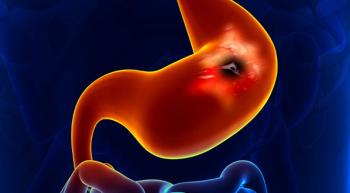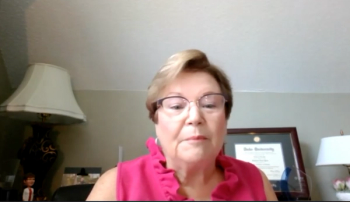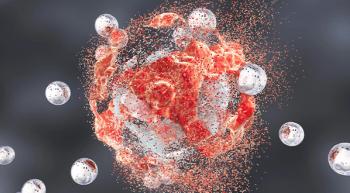
The FDA approved Tukysa plus Herceptin for previously treated patients with HER2-positive metastatic colorectal cancer.


Novel Drug-Chemo Combo May Offer ‘New Standard of Care’ for Certain GI Cancers

The FDA approved Tukysa plus Herceptin for previously treated patients with HER2-positive metastatic colorectal cancer.

I’ve heard the phrase, “don’t waste your cancer,” as a way to encourage survivors to tell their stories and donate to nonprofits.

A novel three-drug combination bested standard-of-care regimens for patients with human papillomavirus-related cancers, according to phase 2 study results.

The combination met its main goal of progression-free survival and secondary goal of overall survival.

Exercising moderately every week has been linked to improved disease outcomes at any BMI in patients with colorectal cancer.

As part of CURE®’s Heal at Home series, we offer a guide on ostomies following surgery and how patients can best care for their stomas.

"We call ourselves the wolf pack. ... It is kind of tongue in cheek, but there is some seriousness behind how we view each other in terms of having each other’s backs,” said Trevor Maxwell, a stage 4 colon cancer survivor and the founder of Man Up to Cancer.

As part of CURE®’s four-part gastrointestinal cancers webinar series, a panel of experts recently answered questions and offered advice around different types of testing.

From Tina Turner’s son, Ronnie, dying of cancer to the Miami Dolphins honoring a group of people who raised over $5 million for oncology care and research, here is what’s happening in the cancer space this week.

Going through chemotherapy treatment was extremely difficult, and eventually I learned that sometimes, it’s OK to not be OK.

From Toby Keith providing fans with an update since his stomach cancer diagnosis to Katie Couric donating $25,000 worth of baby formula to moms with breast cancer, here’s what’s happening in the cancer space this week.

An expert offers three steps that patients can take to become more comfortable and confident with their ostomy after undergoing surgery for gastric cancer.

Zolbetuximab plus the chemotherapy regimen mFOLFOX6 improved progression-free survival and overall survival in certain patients with unresectable or metastatic gastric or gastroesophageal junction adenocarcinoma.

My family put off future plans because of my cancer, but now I’ve decided to take risks and do what we always hoped to accomplish.

From the singer of “Duran Duran” revealing his stage 4 cancer diagnosis — and missing the band’s induction to the Rock & Roll Hall of Fame because of it — to Barry Corbin’s oral cancer fears, here’s what’s happening in the oncology space this week.

After undergoing a colorectal cancer surgery and getting an ostomy, patients may experience a prolapse, but it is not cause to panic, an expert says.

In the depths of chemotherapy, I found myself oscillating between being gloriously present and embarrassingly permissive.

Walking on the American Tobacco Trail has become church-like to me, as I ponder life with cancer.

My trip to the White House to advocate for myself and other patients with cancer was an empowering and memorable experience.

NC410 plus Keytruda will be studied in a phase 1b/2 trial for patients with certain solid cancers that either did not respond to or have not been treated with an immunotherapy agent.

The Food and Drug Administration approved Lytgobi for patients with previously treated advanced cholangiocarcinoma with FGFR2 gene rearrangements.

The FDA’s approval of Vegzelma was based on data that demonstrated the biosimilar elicited comparable safety and efficacy to Avastin in several studies.

While I've been deemed no evidence of disease, I'll continue to support others in my cancer wolfpack.

Cancer made me more empathetic, as well as an advocate for the HPV vaccine.

The Food and Drug Administration granted a priority review for Tukysa plus Herceptin for patients with pretreated, metastatic colon cancer.